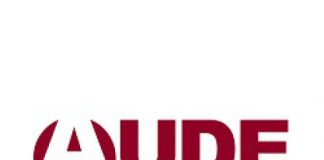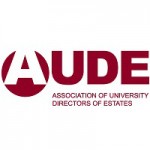Home AUDE
AUDE
AUDE promotes excellence in the strategic planning, management, operation and development of Higher Education estates and facilities. AUDE offers membership to publicly funded UK bodies whose primary remit is higher education teaching and/or research. Our primary objective is to provide strategic support and innovation to those involved in Estates and Facilities Management within Higher Education.
Further information: aude.ac.uk











